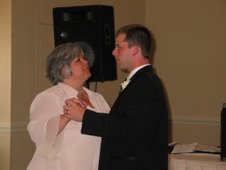What starts out as a narrative describing in sometimes minute detail a London's Newgate prison ends with a fascinating trip into the mind of a man condemned to death and living out his last night on earth. Writing as Boz, Dickens begins the piece explaining how the continual exposure to situations or experiences which we would ordinarily deem unacceptable, become, over time totally ordinary. In fact, we experience this today with the widespread acceptance of social norms that were not socially accepted less than 3 decades ago...or even 2 or 1 decades ago in some cases.
It is the mundane or cursory response and the denial of the suffering inside Newgate prison which Dickens sets out to eliminate. Yet, through much of A Visit To Newgate, the details do not represent anything of particular interest. As Dickens introduces us to the women prisoners, none stand out as someone who demands our interest. Each inhabitant of the prison seems much like the next except of course for the differences in their age and appearance. Describing the inmates as "Hardened beyond all hope of redemption . . ."(p. 3), their only concern is for their own needs. They don't even seem to show appreciation for those who have come to visit. In fact, it is the visitors whom Dickens presents as worthy of our sympathy. Their anguish at the situation of their loved one is evident and while the law punishes the guilty, those who love the guilty suffer as well.
From the women's quarters, we are shown the school where the boys under 14 are kept. Saying, "There was not one redeeming feature among them-not a glance of honesty . . . "(p. 5), Dickens again gives the reader the idea that there is no need to feel sympathy for this group. From the school we travel to the men's quarters. Here everything is much like in the women's area except that Dickens notes that unlike the women who occupy themselves with sewing or some other activity, the men have nothing to occupy their time. Is he saying that given the opportunity men will sit idle, while women seek out something to occupy themselves?
The meat of this story for me is through the man condemned to die the next morning. As Dickens has walked us through this prison, we have witnessed details which are visible to the eye. With the condemned prison, we are taken on a tour of the mind...to the places where we can't possibly be privy, yet we are. Dickens takes us on an emotional journey as the condemned man's thoughts wander back to his life as a child. He resists the urgings for repentance from the clergyman. Exhausted from his never ending thoughts, he falls asleep....and in this sleep he has a visit with his wife. Even though while awake, he could not ask God for forgiveness, in his dream he asks it of his wife. His dreams turn ugly as he is again at trial and is convicted. But rather than fear, he feels excitement with knowledge that he will escape. He does and finally feels safe and happy. It is at this point that he is awakened, possibly by the strikes of the clock and feeling very disoriented must face that he is not free and will die very soon.
The feeling of waking from a wonderful dream....being thrust into the reality of real life has surely happened to all of us. Dickens leaves unanswered the question of whether the condemned man was better able to face his death with the shadow of his recent dream fresh in his mind? . . or does his awakening from the wonderful dream world leave him less resolved with his life?
Wednesday, June 6, 2007
Subscribe to:
Post Comments (Atom)

1 comment:
Wanda,
Once again, an excellent posting! I am impressed by your insightful observations on Dickens's "Visit to Newgate," and the different phases of his narrative. I like your turn of phrase about the transition from a tour of the prison to a tour of the mind! Very good analysis of the condemned man's dream at the end, too. Nice work!
Post a Comment